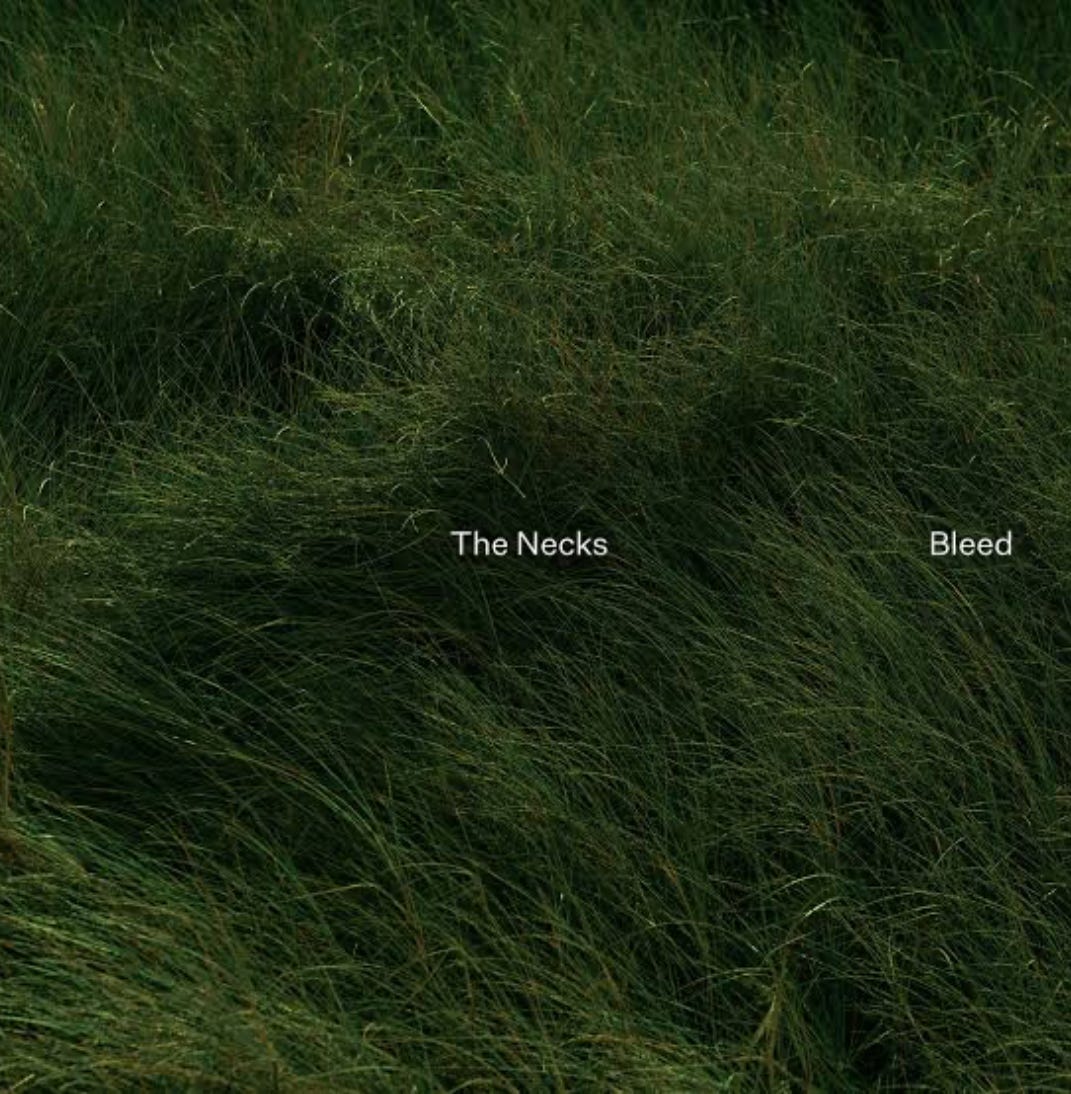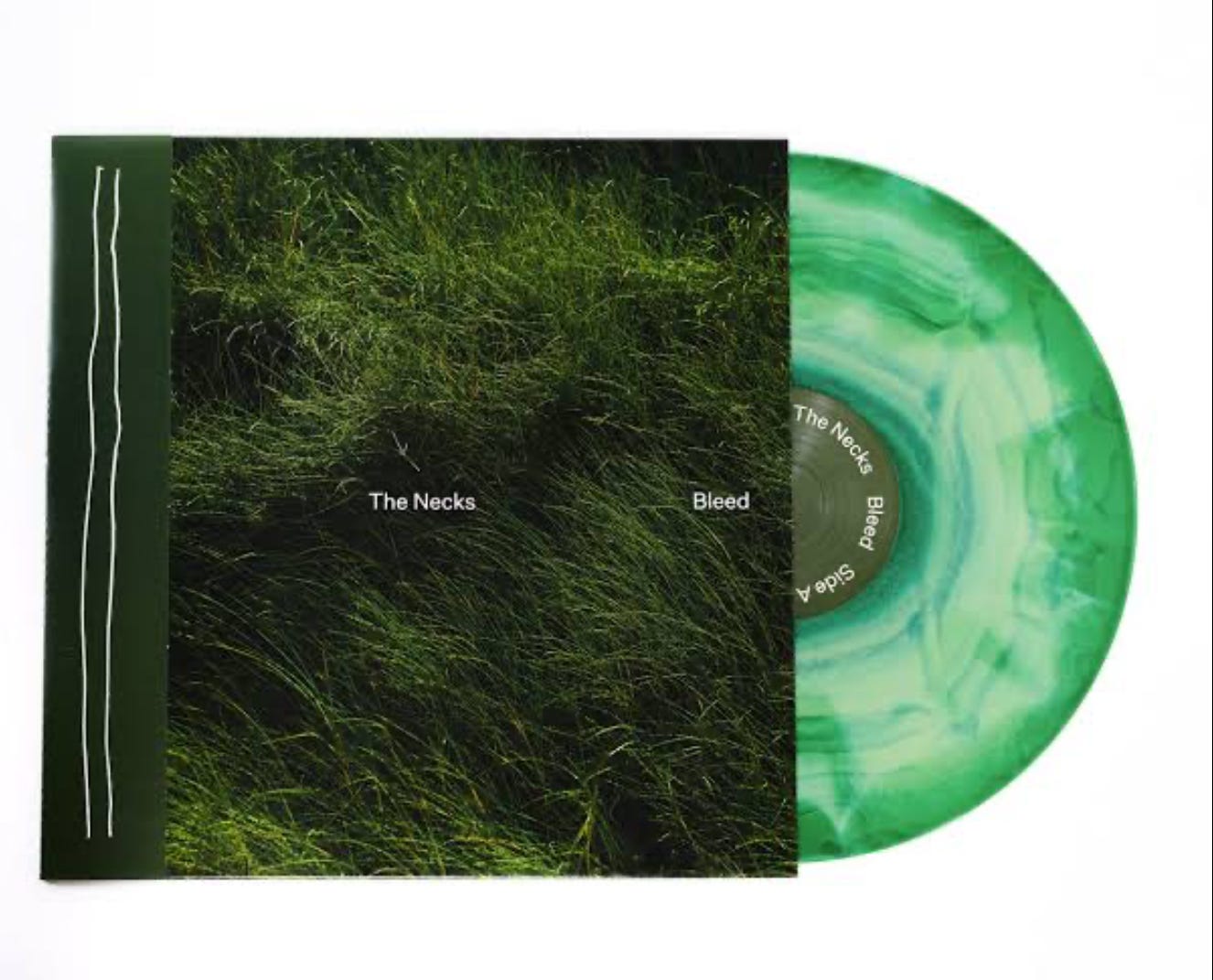The Necks
Bleed
Northern Spy
The magic trick of Australia trio, The Necks, is the way they can sound instantly identifiable, so utterly recognisable, and yet at the same time it always feels like they’re covering new ground, or at least focusing their exploration in a new way.
Bleed is the band’s latest, and, as is almost always the way it’s a single track of between 30 and 60 minutes, this one clocking in at 42.10, and feeling more like a single-session improvisation than some of their through-composed pieces.
It begins, as Necks tracks/albums so often do, with the piano of Chris Abrahams, and eventually the swirling cymbals of Tony Buck, but only after the deeply meditative, stirring and propulsive bass lines of Lloyd Swanton. This album, more so than any other in their catalogue, feels closer to Abrahams’ solo work, and further from any of the other albums Buck has been involved with — inside and outside of this trio.
Often called on to play at jazz festivals, sometimes even described as a jazz trio — well there’s three of them, and they hold the same instruments as a piano-led jazz trio, and in much the same way — there is no mistaking Bleed for jazz. I have to think back to Aether (2001) and Silverwater (2009) for albums by The Necks that take this long to find any sort of groove. In fact, Bleed is so concerned with the negative space as to never find an actual groove. It is their most cinematic album since their actual soundtrack to The Boys (1998) and their slowest, in terms of how the time unfolds on either side of the piano notes, since Open (2013).
Fortunately, for me at least, Aether, Silverwater, The Boys OST and Open are among my favourite listening experiences by The Necks. And if I also love the busier approach of Hanging Gardens (1999) and Body (2018), the groove-driven Drive By (2003) and then deeply crepuscular Vertigo (2015), well, what can I say but I’m a fan. I fell for this band 25 years ago. And I fell hard.
I can absolutely hear that Bleed could be at the less accessible end of the The Necks’ spectrum, for anyone that’s heard good things and finally wants to actually hear the band — but at the same time, this could be the gentle entry point; as much like Steve Reich as they’ve ever been, as much like Hiroshi Yoshimura‘s deeply contemplative recordings (Green) as they’ve ever been, and, when it arrives (about the 30-minute mark on this recording) there is something startling that happens that finally ties it all in together.
But I love this for the fact that it’s their must soundtrack-like work, one of their most calming and meditative, even if to someone else’s ears it could be quite startling, almost unsettling.
I feel there are parts of this that could have scored a classic Giallo, like some of Morricone’s early 70s work where a piano motif met with electronics.
That Bleed never quite goes anywhere, doesn’t mean it doesn’t get to something. Every time this band releases a new album I’m given pause to think back through their catalogue, and listen again, as if it’s all new. I can think of no other band that has been able to do that for so long, and with such consistently strong material. The bond between them as musicians continuing to grow, and develop, and then unfold in front of whoever cares to listen. I’ll always care, because it’s clear that they do too.






